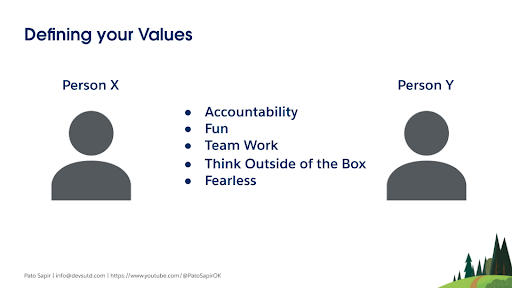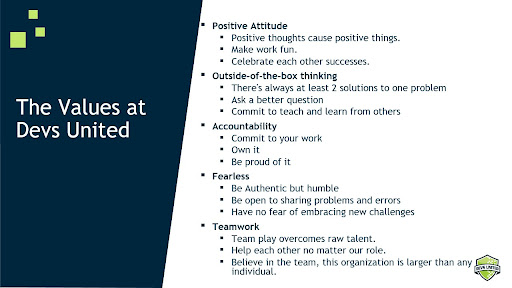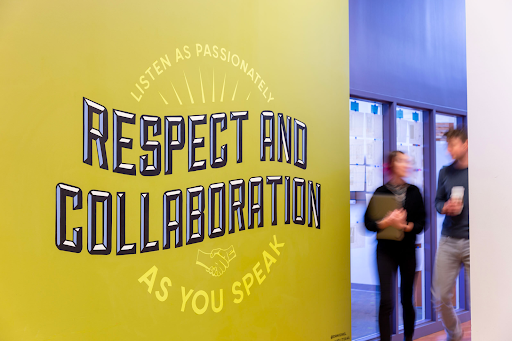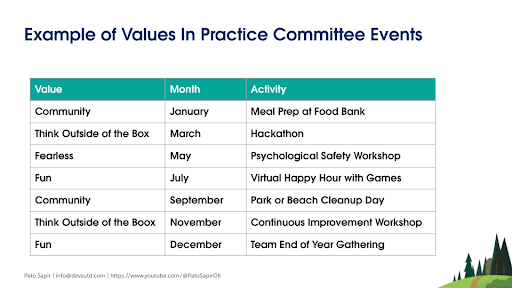Creating Culture in a decentralized world
Pato Sapir
Published on 09/15/2023
Before the 2020 Global Pandemic the notion of having organizations be practically 100% remote seemed like an experiment, reserved for articles you would read in the New York Times or Harvard Business Review.
But the Pandemic forced millions into remote work and while for many companies this seemed like a really good idea on paper the reality is that it affected organizational culture more than you imagine.
In the video below I discussed strategies to create organizational culture in the modern world. But if you are more of a reader feel free to read the summary included with this article.
Intro: The world has changed, forever
In 2020, I came to the realization that the world had changed and we were never going to be living life like we used to.
Fast forward to today and almost half of the population at least in the US are working remotely some partially and others in a full time capacity.
Remote Work: A blessing or a curse?
But is remote work good for us? Or does it hurt us more than we think? Depends who you ask.
While you could say remote work gives you flexibility in time, others feel they are working all the time.
While some say remove work eliminates the need to commute to the office, others feel that home becomes too connected with work.
You may think that remote work forced you to learn to use other channels (such as Slack, Zoom, etc) to collaborate with people but others may feel that this produces a lack of interpersonal relationships.
I believe one of the main issues with an organization with remote employees is that as time goes by, people start working in their own island, creating their own idealization about what the organization is.
Additionally, as new people join the organization (specially entry level people) their onboarding experience becomes more fragmented and transactional.
To bring people together, for them to believe that they are all pushing towards the same direction, you need to build an Organizational Culture.
What is Organizational Culture?
Organizational culture is generally understood as all of a company's beliefs, values and attitudes, and how these influence the behavior of its employees.
When you lack a sense of community, of culture, then your organization starts being siloed.
Creating Culture in a Decentralized World
To create organizational culture, you can implement a method that I like to call: Values In Practice which consists in 3 simple steps:
- Step 1. Define your Values
- Step 2. Communicate them
- Step 3. Put them in practice
Step 1. Define your Values
Meet with your leadership team and think of employees you consider excel in your organization and represent what you stand for. Then write a list of such adjectives. Each person in the leadership team should do the same. Once you finalized with the list of words, discuss with your team which adjectives would you combine or remove or keep. You want to end with a list of 3 to 5 adjectives. These will become your values!

Step 2. Communicate them
For each value, add a short description of what each value represents and why they are important to you.
Share them out with your team in different ways such as team meetings, digital media, swag.
It is important that you don’t communicate your values once but you are making sure that people understand (and more importantly agree with) your values.


Step 3. Put them in practice
The final and most important step to bring people together and create organizational culture is to put these values into practice.
Form a Values In Practice (or VIP) committee with members of different teams and locations (if you have people in different countries, for instance).
I believe that there’s a misconception that the culture of an organization is driven by HR or the Managers but in reality everything works better when the culture is driven by different team members of your organization.
The committee should meet once a month to plan a calendar of activities surrounded each value, see the example below for reference:

Conclusion
Once you implement the VIP method you will notice dramatic change in your organizational culture.
You will begin noticing that you can use your values not only to bring people together but also in other processes of your organization such as performance reviews or hiring.
Organizational Culture begins with setting the standard for the values your team stands for. When people agree with these values, they all push towards the same direction as a unified force and good things happen.
